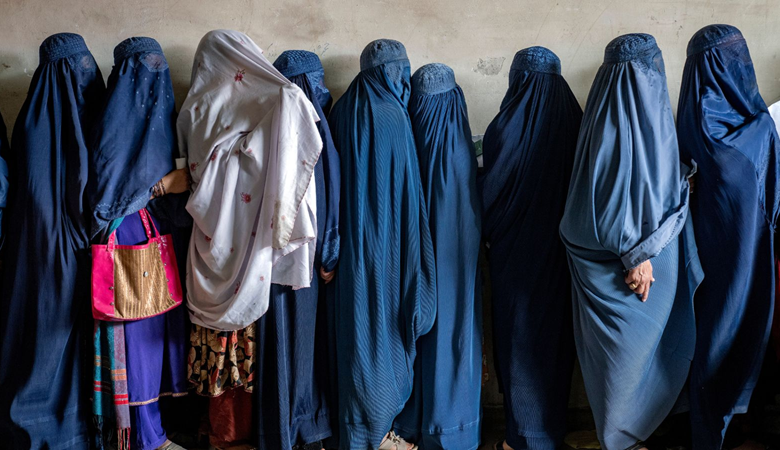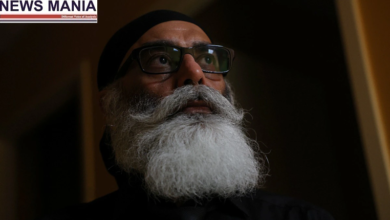Taliban Enforces New Vice Laws: Women’s Voices and Faces Banned in Public

News Mania Desk/Agnibeena Ghosh/23rd August 2024
The Taliban, now in power in Afghanistan, has introduced new regulations targeting women’s public presence as part of their efforts to enforce strict Islamic laws. The latest set of rules, issued by the Ministry for the Propagation of Virtue and the Prevention of Vice, explicitly bans women from exposing their faces or having their voices heard in public. This move comes as the Taliban continues to tighten its grip on the country, reinforcing conservative norms that severely restrict women’s freedoms.
These new regulations were approved by the Taliban’s supreme leader, Hibatullah Akhundzada, and were formally announced on Wednesday. The 114-page document detailing the laws is the first comprehensive declaration of vice and virtue regulations since the Taliban regained control of Afghanistan in 2021. The laws encompass various aspects of daily life, including public behavior, transportation, music, and social interactions, signaling a return to the harsh restrictions that characterized the Taliban’s previous rule in the 1990s.
The regulations governing women are particularly stringent. According to Article 13 of the new laws, it is now mandatory for women to cover their entire bodies, including their faces, whenever they are in public. The reasoning behind this, as stated by the ministry, is to prevent temptation and uphold moral standards. Women are also forbidden from wearing clothing that is thin, tight, or short, and must cover themselves even in the presence of non-Muslim men and women to avoid being “corrupted.” Furthermore, the law deems a woman’s voice as intimate, forbidding her from singing, reciting, or reading aloud in public.
The new laws extend beyond personal appearance and behavior. Article 17, for example, bans the publication of images of living beings, posing a significant threat to Afghanistan’s already fragile media landscape. Article 19 imposes a ban on music, restricts the movement of solo female travelers, and prohibits the mixing of unrelated men and women in public spaces. In addition, passengers and drivers are now required to perform prayers at designated times during their journeys.
The Ministry for the Propagation of Virtue and the Prevention of Vice, a key enforcer of these laws, has been granted significant powers to regulate personal conduct across the country. Violations of the laws can result in punishments ranging from warnings to arrests. The ministry’s role is not limited to enforcing dress codes and public behavior; it is also expanding its reach into other areas of public life, including media monitoring and efforts to eradicate drug addiction.
This intensification of Taliban control has drawn widespread criticism, particularly from international human rights organizations. A recent United Nations report highlighted the ministry’s contribution to a climate of fear and intimidation in Afghanistan. The report raised alarms over the ministry’s increasing influence and the broader implications for the rights and freedoms of Afghans, especially women and girls. Fiona Frazer, head of the human rights service at the U.N. mission in Afghanistan, expressed deep concern over the ministry’s expanding oversight, warning that it could lead to further repression and human rights violations.
Despite these concerns, the Taliban has dismissed the U.N. report, maintaining that their actions are in line with Islamic law and necessary for the promotion of virtue. As the Taliban continues to implement and enforce these restrictive laws, the future of women’s rights and freedom of expression in Afghanistan remains bleak.






